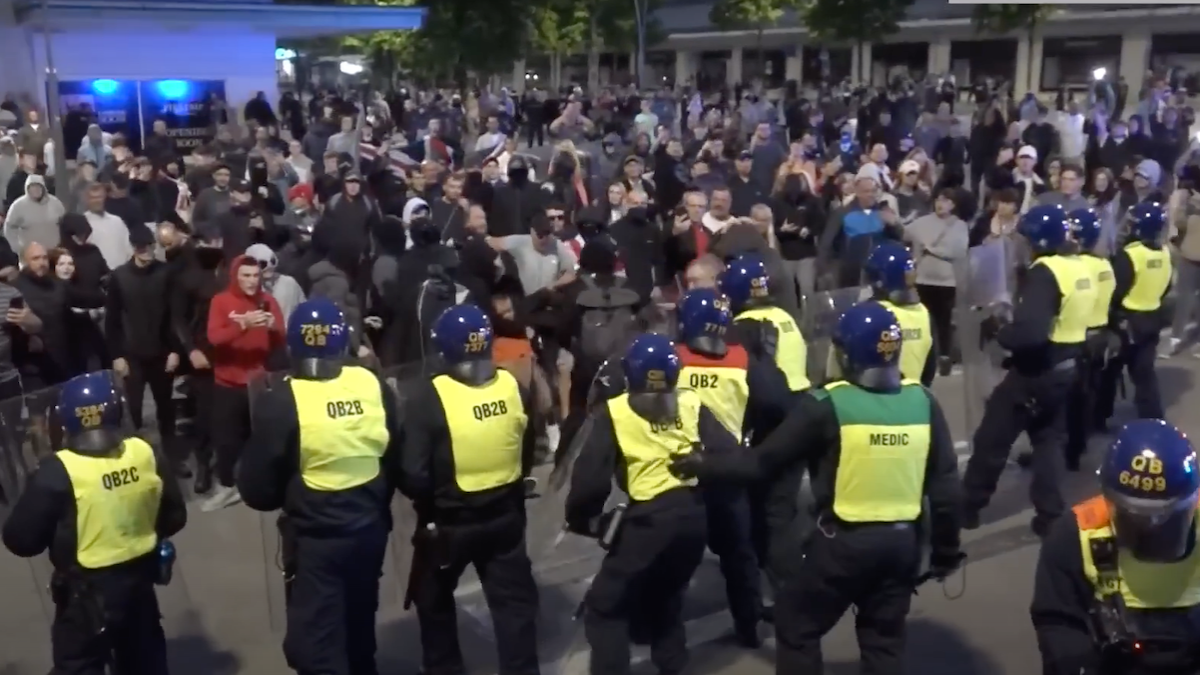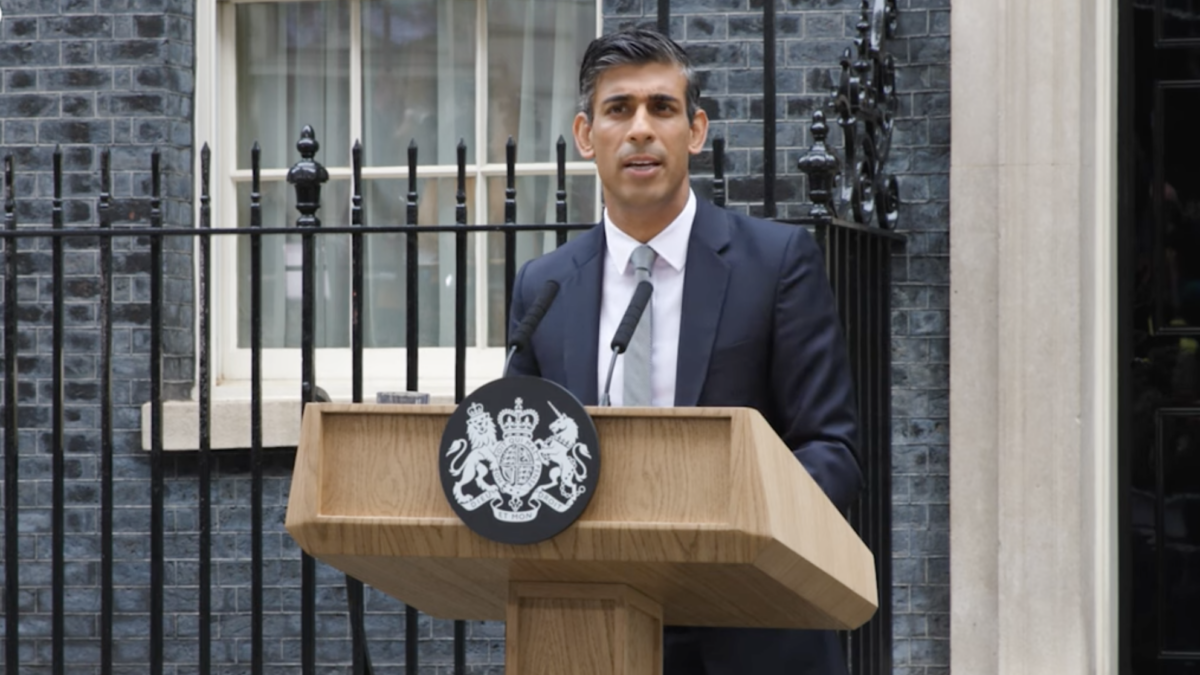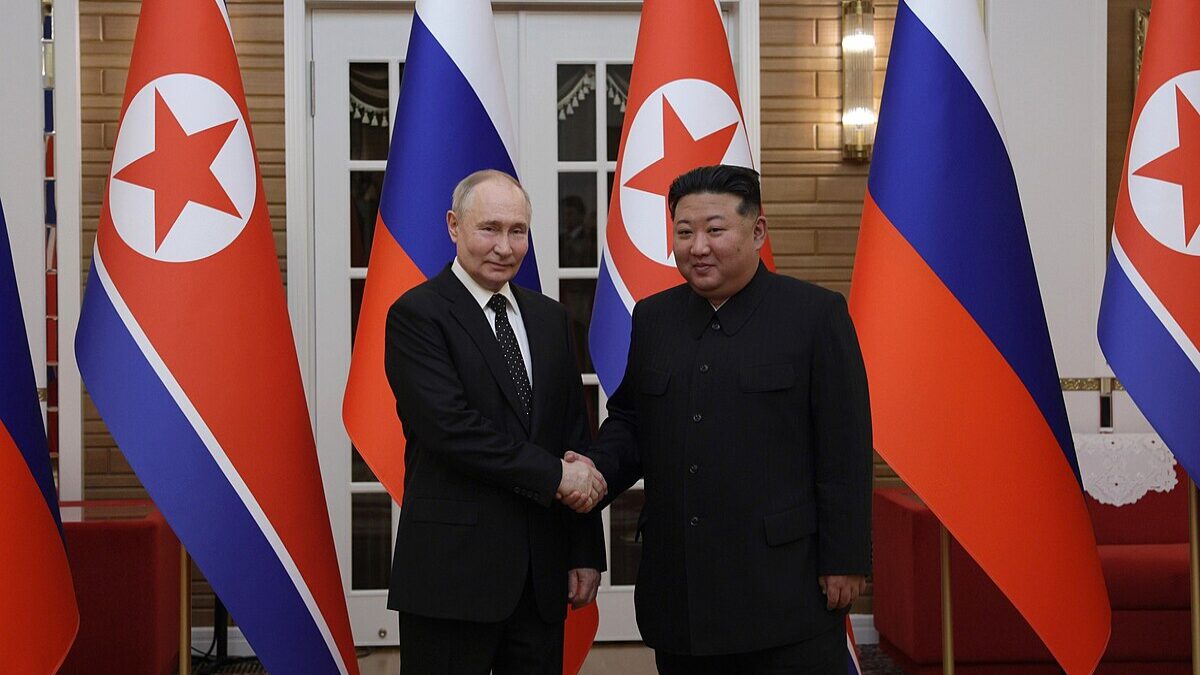The other day National Review Online ran an excellent article by Brendan O’Neill, “Islamophobia Is a Myth,” pointing out that “liberals’ instant, almost Pavlovian response to Islamist terror attacks in the West is to worry about a violent uprising of the ill-educated against Muslims” but that this working class insurrection never materializes. O’Neill argues that this “Islamophobia panic” of the Western elites is really about their contempt for “Them,” the “native hordes” who “come from the other side of the tracks, read different newspapers, hold different beliefs, live different lives.”
Three other articles posted at around the same time, while not directly responding to O’Neill, suggest three liberal counterarguments: factual, tactical, and emotional. They’re all unpersuasive.
Graffiti Isn’t Anything Like Mass Murder
Max Fisher attempts to document an anti-Muslim backlash in Vox, posting an ominous-looking map from “a respected British anti-Islamophobia group, Tell MAMA UK,” which purports to show 15 attacks on French Muslims since the Charlie Hebdo massacre. But half of the alleged reprisals, despicable as they are, involved graffiti, and even Fisher acknowledges that “the attacks have been relatively small-scale, especially compared to the Charlie Hebdo massacre and subsequent violence committed by its apparent culprits.”
Even more “small scale,” I would add, when compared not just to the 17 deaths in Paris but to the thousands killed on 9/11, in the recent horrific butchery in Nigeria, and in countless other acts of Islamist violence. So I don’t think that even Fisher would really argue, as much as he might like to, that his scary looking map actually contradicts O’Neill’s irrefutable point that despite 20 years of Islamic terrorism in the West the “Islamophopic” pogrom feared by liberals has still not happened.
Don’t Redirect Sympathy for Terror Victims
Jeffrey Goldberg makes the tactical argument in a coda to a sober Atlantic piece the day of the massacre titled “Europe Is Under Siege.” Goldberg disputes “the observation that this is the wrong day to warn against overreactions directed against the broader Muslim community,” arguing that such a focus on the part of Western leaders helps “to separate and isolate the extremist Islamist minority from the more moderate Muslim majority” by reassuring the latter “that the West is not looking for a fight with the entire civilization of Islam.”
Goldberg’s argument is sullied by a dark warning about “protecting ordinary Muslims from revanchism” which illustrates exactly the reflexive class snobbery that O’Neill is talking about. However, shorn of that snide reference (which may have been a sop to The Atlantic’s elite readership), Goldberg’s tactical point deserves a response. Mine is that of course the desire to appeal to moderate Muslims should be one important consideration in Western opinion leaders’ response to Islamic terror, and I doubt if O’Neill would disagree. But this has to be proportionate with other valid considerations, such as giving voice to the legitimate outrage of society. And the disproportionate, unseemly, and downright ridiculous fixation of liberal elites on potential Muslim backlash victims after every terrorist attack—often, as O’Neill says, while the blood of the actual victims is still wet (consider the Sydney “#Illridewithyou” hoax concocted by a liberal activist, while hostages were still being held, to make people “think about the victims of the siege who were not in the café”)—suggests that this kind of strategic concern is not what’s animating them. Rather, it shows that O’Neill hits the nail right on the head about what’s really going on.
Muslims Do Need to Speak Up and Reject Terror
Another problem with Goldberg’s argument is that it seems to absolve the moderate Muslims, at least initially, of any obligation to speak out against the evil done in their name by barbarians. As someone of half German and half Jewish origin, I’ve had occasion to think about this responsibility, and I would note that when the Germans were doing barbaric things to Jews and others no one was fretting about my mother’s family and other German-Americans—nor should they have been! In fact, as this barbarism was being done in the name of “the Germanic peoples” those of German heritage were being asked more than others to demonstrate their patriotism and devotion to civilized values—and quite rightly so. The same rule should apply now.
Finally, Andrew Sullivan makes the emotional argument, stressing that we must “never forget the Muslim victims of Islamic terrorism,” including the heroic policeman, Ahmed Merabet, killed by the Hebdo murderers. But contrary to Sullivan’s implication, Merabet is quite rightly being hailed as a hero and martyr by people across the ideological spectrum. His heroic death, and even more his everyday life, resonates particularly for neoconservatives like me because it offers up the hope that, despite the hijacking of liberalism by the multicultural Left, somehow the great liberal assimilationist dream can still be achieved.









